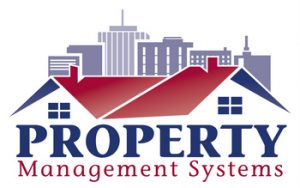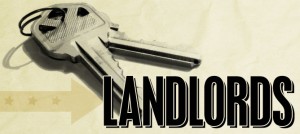By Property Management Systems
When you own rental properties in Portland Oregon or elsewhere in the United States one of the “keys to success” is having a solid lease because the strength of your lease can mean the difference between generating long-term cash flow from your rental properties or having problems with your tenants.
If you’re just getting started with owning income properties, or you’ve owned them for some time, this article will provide you with actionable tips you should use for creating the best lease possible.
How to Create A “Rock Solid” Lease
You must lay out the terms of tenancy: Is it a fixed-term or month-to-month lease? Is the lease self-renewing and does your lease have a specific end date?
Set firm rules for rent payments include the amount, due date, and acceptable form of payment. Your regulations for late fees and bounced checks must be spelled out.
Be clear about the terms for deposits & fees: How much is your security deposit? What are your terms of its use (e.g. the landlord can use it for damage repair; the tenant can’t apply it toward their rent)? Do you charge any non-returnable fees (e.g. for pets or cleaning)?
Make sure your lease includes each adult tenant’s name: This is important so that they can be held accountable for paying rent or violating the lease’s terms.
Always limit occupancy: Only those tenants whose names are on the lease should be allowed to live long term in the property, giving you the right to evict anyone else. You should also include a clause on subletting because the question may come up one day.
List maintenance duties: Specify that it’s the tenant’s job to keep the unit in good shape, so they’re responsible for any damage. Lay out maintenance request procedures because your tenant’s failure to maintain the property will only make your job of renting in the future harder especially if they’ve left behind damage or repairs that need to be made.
You have to clarify your access rights: Make sure that the tenant is aware that you have a legal right to enter the unit under certain conditions including repairs, inspections, or emergencies, and that you’ll give 24 advance notice for non-emergencies.
Don’t forget to lay out rules for pet owners regarding spaying/neutering, vaccinations, waste disposal, and pet deposits. You should also reserve the right to refuse certain pets especially if they pose a danger to children or neighbors in the area.
You absolutely must restrict disruptive and illegal behaviors (e.g. excessive noise, drug dealing) to keep other residents happy, prevent property damage, and protect yourself from lawsuits.
More Tips for Creating a Great Lease
Add Necessary Clauses
To make your lease even better, add the right clauses. Clauses are one of the most helpful ways to mitigate legal problems. They are written in proper legal jargon to protect you and your tenant from legal headaches, so take advantage of them! Clauses essentially make your lease an improved guidebook, telling you how to handle a situation. For instance, what should you do if you need to gain access to the unit? Well, in your Access to Premises Clause, you’ll see you are required to give a 24-hour notice (Note: different states have different rules). There should be clear answers written in your lease for these kinds of problems.
Here are nine important clauses. We included clear descriptions of each clause with decoded legal jargon.
- Severability Clause: This clause ensures that if one phrase, clause, or a portion of the lease is deemed invalid, the rest of the lease will still remain valid unless proven otherwise. In essence, the remainder of the lease will remain unaffected and its rules will be enforceable. This is important to include because it helps you avoid your entire lease being deemed invalid, putting you at higher risk of legal trouble.
- Jointly and Severally Liable: Every tenant who signs the lease is responsible for paying rent and upholding all aspects of the lease agreement. ‘Jointly and severally’ is legal jargon for ‘both and equally.’ In other words, all roommates are equally responsible for paying the full rent amount each month. If you want to decode other legal jargon, check out this free, comprehensive legal dictionary.
- Access to Premises: As a landlord, you are allowed to access your property, as long as it’s during reasonable hours and with proper notice. This clause also allows you to enter the property without notice in the case of an emergency.
- Lessee to Maintain: The tenant maintains the condition of your unit, including appliances, fixtures, and smoke/carbon monoxide detectors. If the tenant damages the unit, they are responsible for paying for any damages. If your tenant moves out and you discover damage, this clause continues to uphold their responsibility for damages. You can subtract the cost of damages from their security deposit or bill them. “Reasonable wear and tear” is okay, but serious damage is a tenant’s responsibility to fix.
- Attorney’s Fees: If a lawsuit should arise and you are the prevailing party, this clause ensures your legal fees will be rewarded to you by the court.
- Sublet Rules: Simply, this clause states that your permission is required if a tenant plans on subletting.
- Disturbance Clause: A tenant is required to behave in a way that does not disturb neighbors, especially before certain hours. You can customize this clause to state the hours that you prohibit loud music, etc.
- Holding Over: This clause makes the assumption that if a tenant hasn’t moved out by the time their lease is up, the lease operates on a month-to-month basis. Legally, the lease is null when the end date passes, but with this clause, you better retain your legal rights if the tenant stays. It’s better to create a new month-to-month lease, so there are no ‘assumptions,’ but this clause protects you in case you don’t come up with a new lease in time. Tenants are still required to pay rent if they stay in your unit past their move out date. A holding over clause can even have a double monthly rent statement, meaning the tenant can stay but their new rent will be double the previous rent price.
- Rent Liability: The tenant is legally responsible for paying rent throughout the duration of the lease. Although this clause is simple, it’s important to include so there is no confusion about who is liable.
Update Your Rental Lease Often
Every time you renew with a current tenant or sign with new tenants, you should consider updating the terms and language of your lease. The best rental leases are the most updated. Here are four ways to update your lease:
- Update rental terms: this includes tenant names, lease dates, cosigners, fees, etc.
- Update your rent price: Rent prices change frequently based on market changes, seasonality, and tenant demand. Not sure if you should change your rent price? Check out this blog on determining your rent price.
- Update rules and requirements: Want to start allowing pets so you can charge pet rent? Want to add an Automatic Renewal Clause so your lease renews automatically?
- Update to reflect ever-changing landlord-tenant laws: Stay informed to make sure you’re complying with the most up-to-date laws and update your clauses as necessary.
It’s easy to make these kinds of updates online in our lease builder. You can even add your own addendums by simply uploading an attachment. Each time you ask a tenant to sign a lease, you should fully review your lease before sending it to them. This ensures that your lease accurately reflects your current requirements and state laws.
Use an Online Lease with Digital Signatures
So far in this blog post, you’ve learned how to make your lease stronger and more thorough. But beyond the content of your lease, it’s important to consider how it’s built, presented, stored, and signed.
Online leases are the best leases. Here’s why:
-
Customization is easier online. Instead of reviewing legal documents over and over again with a lawyer, you can easily add, subtract, and customize your own clauses online.
-
Online leases are accessible at any time. This transparency is comforting to both you and your tenant.
-
They are stored and backed up. No one can claim they lost their copy of the lease.
-
Signing a lease is easier online: Instead of repetitively emailing and faxing your lease, you can simply send the lease, ready to be signed, directly to your tenant’s inbox.
-
Digital signatures are just as secure and enforceable as written signatures.
Save Time and Money with Property Management
Don’t like the thought of creating a lease yourself? Save time and money with professional property management by calling Property Management Systems today at (503) 515-3170 or CLICK HERE to connect with us online.







